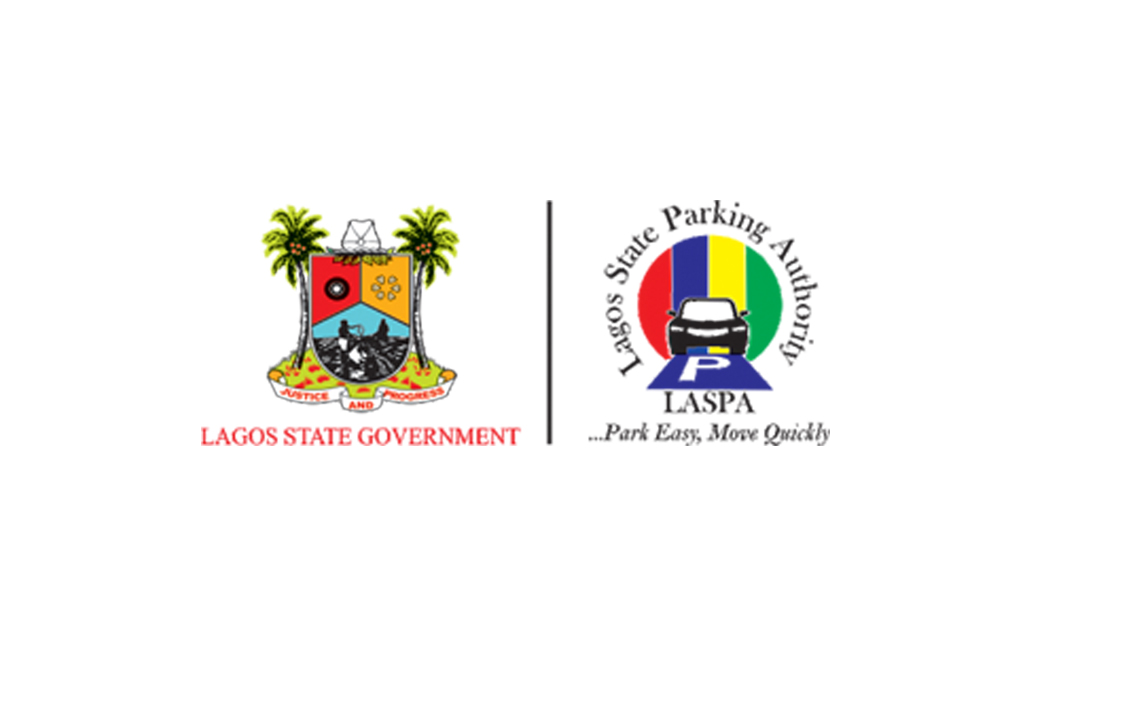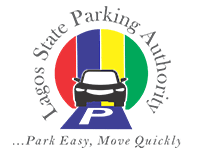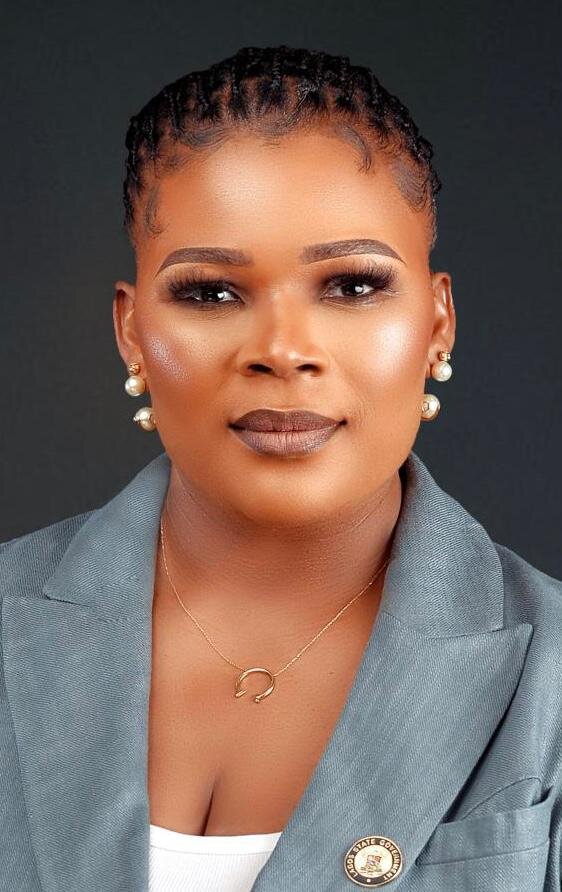
LASPA Is Set To Evolve World Class Parking System For Lagos – Adebisi
Mrs Adebisi Adelabu, the General Manager of Lagos State Parking Authority, (LASPA), in this interview, OLORUNDARE ENIMOLA, debunked the notion that the agency was a revenue generating one, but created solely to rid Lagos of parking encumbrances impeding normal traffic flow, and to generally regulate the parking business in the state to becoming a major source of employment generation.
Excerpts:
The Lagos State Parking Authority, LASPA, when was it created and what are the objectives?
It was created in the second half of last year, sometimes in July to be exact and its core objective is to regulate and manage all forms of parking across the state.
Was operations targeted to cover certain areas of the state or the state in its entirety?
It is a holistic approach; it is about on-street-parking which affects all motorists, it is about off-street-parking which deals with regulating and licensing, including the management of parks and garages.
It is important that we get it right and that is why we are not in a rush, we are starting with metropolitan Lagos, covering the business districts, then to other parts, in phases until we cover the entire state.
What we seem to have in existence at the moment are statutory parks and garages which can be found in places like the Lagos Business District, dotting the marina shoreline, in market places, malls and other public places where motorists pay to get their vehicles parked. Are you setting aside such arrangements, dismantling them, collaborating with them or how do you intend to work it out?
We are not dismantling statutory parks and garages.
I think it is a mixture of both, for those who do not presently have a parking space, we encourage them to acquire lands which can be used for parking purposes, because the days of just opening an event Centre, a church or even a mosque expecting to park anywhere and impeding traffic will soon be over in the state.
The sole mission of the governor in setting up this agency is to get rid of parking encumbrances; you cannot control traffic without tackling parking. In the THEMES agenda, transportation is number one and that is in recognition that transportation occupies the number one place in our everyday lives and parking is a big part of transportation.
You see people parking indiscriminately, while some are collecting money illegally from parking without recourse to the state.
So the government in its wisdom decided to do something about it to alleviate the suffering of the people on Lagos roads and of course to tackle the issue of changing the cultural perspective to parking. People should begin to see it is not just getting somewhere to park, but it is that process of affecting other people.
It is important they begin to see how their parking affects other road users. When you park on some roads in Lagos for two minutes, you create a backlog of traffic for ten minutes; this is the kind of culture we are trying to change.
So, the existing parking and garage arrangement can still continue?
Yes, for some it can still continue. What we are actually saying is that, as it is in Lagos today, it is largely unregulated and faceless.
You have a plot of land and you just go ahead to turn it into a parking space and collect money. Some will turn a particular street or area into their territories, collecting parking monies from motorists, the government is now frowning at such arrangements, asking such to come and register and become concessionaires.
We need to know the people operating within those areas, so in case something goes wrong we have somebody that can be held accountable.
It is all about accountability and we also say we are empowering people – especially the area boys, the touts and those who have local knowledge are empowered as concessionaires and thereby generate employment for them.
Some people say your agency is another income generating agency, what do you have to say about that?
That is absolutely not. That is not our core objective, of course, you find those who believe they are above the law and do not have to answer the law, but punitive measures are in place to handle such.
But fundamentally, our core objective is to transform the parking landscape in the state of Lagos. It is not just the off street parking and garages, it is also about those who feel they can park several cars on the road, which we are putting a stop to. It is a cultural shift, and we are putting a stop to it.
It will take time to get there, but we will eventually get there, compliance will grow. Those landlords who build houses of twenty flats but only have spaces of five cars, will soon be disappointed because it will get to the point that people who want to rent your house would think of the difficulty it will cause them, they would be forced to do something about it.
But we have to start from somewhere as part of our five years master plan and that is why we are starting from here, saying how we can make immediate changes that can be translated into daily cultural habits.
It is all about getting the people knowledgeable about the agency, knowing what we wanted to do, how to achieve it properly and of course erecting signage on the road, laying markings on the road, so that they can see this is not a place they can park.
We also consider the disables and emergency services, because as it is now there is no specific space to park on the road, we are saying that at least about 20 percent of parking spaces should be reserved for them, the emergency services, so that the police, fire department can plan ahead and say we have a truck stationed here or there, so that people can call on them and they can move quickly, these are some of the things that the government is looking forward to achieving and getting there in ample time as well.
In your five year master plan, what do you intend to achieve; you spoke about advocacy, what are the other activities that will characterize those years?
Our first priority is to get the word out through advocacy. We cannot regulate parking issues without advocacy which is by talking to people like you, putting the word through the media, putting it out on the street, making Lagosians on the roads understand the need for parking appropriately which is the first point.
Then, we transition to how we get it to work, by erecting signage, laying markings, so that motorists can know that for every violation, there are punitive measures you cannot enforce without putting necessary signage and land markings.
The third thing is operations, to know the number of concessionaires we want to have for each of those areas, then we put out the request for proposals asking them to submit their business plan, so we can ascertain if it’s a commercial or non-commercial venture. When we say non-commercial, those are hotels, banks and others that do not necessarily charge you for parking but have need for parking, then we have the on-street parking concessionaires who collect money for parking need also to come to us for licensing, so we can have a regulated system.
In doing that, the bigger picture is that we create employment and we change the culture of parking to a better one in Lagos.
Don’t you think you will be on a collision path with some of these parking operators who are mainly street urchins, touts, area boys who will see your objectives as an affront or a direct aim at taking away their means of livelihood, how do you intend to carry them along or integrate them?
Everywhere in the world, you find the mobs and the gangsters, but they understand the roles the government plays and the need to buy into certain government schemes.
The Government is not saying they should not run parking businesses, but it is saying, do it legally that is the difference, there street urchins have the knowledge and know how many cars can fit in into their streets without even laying markings, what we are only saying is that they should do it legally, do it formally, so if something goes wrong there will be accountability and of course you cannot run a business without a recourse to the state.
It is inevitable that at some point that they would have to give to the state what belongs to the state. We are not driving most of them away, we are saying come on board so we can do things the right way change is often difficult, that is why we say beyond revenue generation, there is need for cultural shift, that whatever you do, have an effect on others, it has a resonating effect on others.
Apart from advocacy, how do you intend to enforce compliance?
We will be working with law enforcement agencies obviously because that is essential and we also have our enforcement unit here who will work with the concessionaires to ensure that when issues arise, they can assist in normalizing it, while advocacy will also increase the level of compliance, yet you will still have offenders.
You spoke about technology, what kind of technology are you hoping to deploy to achieve your aims?
Like I said, we have a five year plan, our end goal is artificial intelligence, whereby we have on street devices that get plate numbers so that you can pay via the apps but we need information data to get there.
So, how are we starting out with payments using the existing payment apps in the state, but those who are not educated, can pay cash, which will be remitted into the E-wallet of the concessionaire and so on. There are multiple channels of payment. We will continue to evolve.
Source: Independent Newspaper

